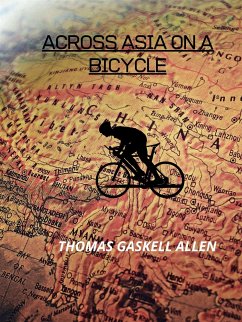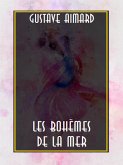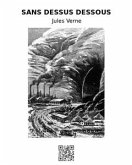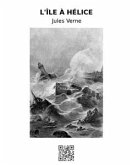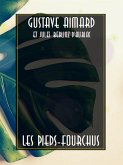BEYOND THE BOSPORUS
On a morning early in April the little steamer conveying us across from Stamboul touched the wharf at Haider Pasha. Amid the rabble of Greeks, Armenians, Turks, and Italians we trundled our bicycles across the gang-plank, which for us was the threshold of Asia, the beginning of an inland journey of seven thousand miles from the Bosporus to the Pacific. Through the morning fog which enveloped the shipping in the Golden Horn, the "stars and stripes" at a single masthead were waving farewell to two American students fresh from college who had nerved themselves for nearly two years of separation from the comforts of western civilization.
Our guide to the road to Ismid was the little twelve-year-old son of an Armenian doctor, whose guests we had been during our sojourn in Stamboul. He trotted for some distance by our side, and then, pressing our hands in both of his, he said with childlike sincerity: "I hope God will take care of you"; for he was possessed with the thought popular among Armenians, of pillages and massacres by marauding brigands.
The idea of a trip around the world had been conceived by us as a practical finish to a theoretical education; and the bicycle feature was adopted merely as a means to that end. On reaching London we had formed the plan of penetrating the heart of the Asiatic continent, instead of skirting its more civilized coast-line. For a passport and other credentials necessary in journeying through Russia and Central Asia
On a morning early in April the little steamer conveying us across from Stamboul touched the wharf at Haider Pasha. Amid the rabble of Greeks, Armenians, Turks, and Italians we trundled our bicycles across the gang-plank, which for us was the threshold of Asia, the beginning of an inland journey of seven thousand miles from the Bosporus to the Pacific. Through the morning fog which enveloped the shipping in the Golden Horn, the "stars and stripes" at a single masthead were waving farewell to two American students fresh from college who had nerved themselves for nearly two years of separation from the comforts of western civilization.
Our guide to the road to Ismid was the little twelve-year-old son of an Armenian doctor, whose guests we had been during our sojourn in Stamboul. He trotted for some distance by our side, and then, pressing our hands in both of his, he said with childlike sincerity: "I hope God will take care of you"; for he was possessed with the thought popular among Armenians, of pillages and massacres by marauding brigands.
The idea of a trip around the world had been conceived by us as a practical finish to a theoretical education; and the bicycle feature was adopted merely as a means to that end. On reaching London we had formed the plan of penetrating the heart of the Asiatic continent, instead of skirting its more civilized coast-line. For a passport and other credentials necessary in journeying through Russia and Central Asia

